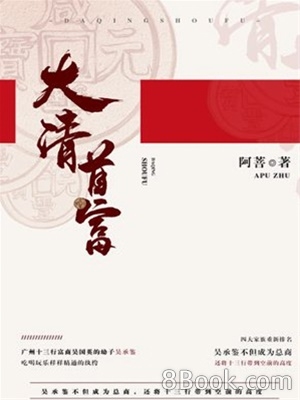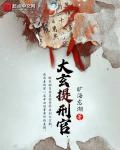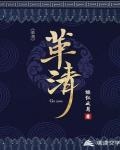Volume 3 Chapter 57 Cantonese
At the end of March, with Wanyan Loushi's surprise attack on northern Shaanxi, the war between Song and Jin broke out again.
Besides, this war was unprecedented in terms of the mobilization strength, breadth and political determination of both sides. In order to fight this war, the Jin Kingdom staged a drama of forcing the emperor to abdicate, and in order to deal with this war, the Song Dynasty staged the incident of entrusting the orphan to the care of the emperor in the palace... Moreover, once both sides made up their minds, they no longer cared about the mess behind them.
What about Mongol Kubula Khan, what about the Great Sage of Dongting Lake, what about Yelu Dashi of Western Liao? These people and words that must be treated with extreme caution under normal circumstances have been completely forgotten by both sides at this moment.
Hidden within, both countries were determined to make a desperate effort.
There is no way out. For the Jin and Song dynasties, this is a battle of national destiny that is bound to happen.
It was indeed destined. If Zhao Jiu had only relied on his experience as a time traveler, his rough guesses, and chaotic thoughts before, now he no longer had any doubts:
The full-scale war between the Song and Jin countries had lasted for five or six years, and these five or six years of war were divided into stages.
Among them, in the first two and a half years, the Song Dynasty, which had absolute strength, collapsed again and again, while the Jin Dynasty expanded again and again. The so-called quantitative change leads to qualitative change. This continuous collapse and unceasing expansion eventually led to the Jingkang Change that almost led to the demise of the Song Dynasty. In the next three years, the Song Dynasty, which still had most of its body but had just woken up from shock, struggled hard to survive. After struggling for three years, it finally returned to the old capital. At the same time, the expansion momentum of the Jin Dynasty since its founding was finally gradually suppressed.
At this time, the war had entered a new stage after years of trials and accumulation, and the signs of a stalemate between Song and Jin along the Yellow River had become obvious.
However, at this moment, since both sides have already entered the war machine mode... as long as they stick to this mode, many things will not be subject to human will... the battle that is supposed to break out will break out sooner or later, and even the preset battlefield is destined.
Everyone knows that after three years of efforts, the Song Dynasty's imperial camp has become stronger, while the Western Army is still weak. Everyone knows that Guanzhong is a strategically important place, which can be used to control the Central Plains, and keeping it can also ensure the survival of the Central Plains.
This battle is destined to break out, destined to break out in Kansai, and destined to be affected by the overall situation of each country. Every move, every action, every move, every move in daily life, from national strategy and national characteristics to specific policy orders and appointments, will be tested in this battle.
As for Lou Shi and Zhao Jiu, rather than being the initiators and greeters of the battle, it would be more accurate to say that they were the sword-bearers and shield-bearers chosen by the two huge countries. They just did not refuse or evade.
In fact, if Lou Shi had not realized that his body was about to collapse, it was most likely Wanyan Nianhan who came to his senses half a year later due to the slackening of political struggles, or it was simply Wanyan Wushu who came to Guanxi to do this.
If Zhao Jiu had not suddenly discovered that he had his own flesh and blood in this era, and then made up his mind deep in his heart long ago, then perhaps Han Shizhong would have presided over this matter... Even if Zhao Jiu had never climbed out of the well, wouldn't Zhang Jun have risked everything in Guanzhong to plead for the small southeastern court?
This battle must be fought!
"We must fight this battle, because only by winning this battle can we preserve Guanzhong. You must know that once Guanzhong is lost, the Central Plains will also be lost. At that time, Guanzhong and the Central Plains will end up like Hebei..."
"The fate of Hebei was clearly stated in the court report before. I have already said it. Moreover, your imperial camp is along the Yellow River. I don't believe that you have never seen the refugees from Hebei. Even if you don't know, go and ask your fellow soldiers in the Eight Character Army. You should know... Don't think that being a submissive subject of the Jin people will do you any good. The Jin people's Meng'an and Mouke don't treat the local people as human beings. They gamble with each other and capture people from the village as chips. The strong ones count as two chips, women count as one chip, and the elderly and children count as half a chip... This is how the Eight Character Army in Taihang Mountains rose..."
"But if we can win this battle, Guanzhong can be preserved. With the population, wealth, and weapons of our Song Dynasty, we will be able to raise an army of 300,000 to march north in three years, and recover the two rivers in five years. In ten years, we may be able to destroy Jin..."
On the last day of March, in the evening, a Song army of about four to five thousand people was setting up camp in front of Sishui Pass.
Thanks to the military conflict more than two months ago and the corresponding imperial expedition, the Song army was familiar with the route this time . The most intuitive point was that there were large garrisons left over from the previous battle along the line from Tokyo to Shanzhou, which made it much easier for the Song army to set up camp. The newly-appointed Jinshi sent out from the army were able to convey the emperor's orders and explain the court reports to the captains before dinner.
It is said that before Emperor Zhao led the army in person again, he tried to let these scholars directly enter each capital (a team of one hundred men) and then convey his determination, intentions, and military orders to the lowest level. However, he gave up because the number of people was not enough.
But even so, as the government and the central government expressed an unprecedentedly severe attitude, these new scholars and military staff had to increase their direct contact with the officers.
At the very least, reading court bulletins to the captains, explaining imperial decrees and military orders, and introducing geographical and military situations had become a "routine" that these scholars had to do when they camped at night. It also became a rope around the necks of these new scholars.
In fact, the imperial report system under the Honglu Temple also entered the so-called wartime state after the palace entrustment, with supplements published almost every day, and the content was no longer confined to the traditional form. At the same time, in order to ensure the wide dissemination of the imperial reports in the army, hundreds of students, including hundreds of scholars in Tokyo, were recruited to the Imperial College, whether they were young men from wealthy families or booksellers, to copy and organize each supplement.
"This is probably what the supplement to the official newspaper sent today looks like."
At the campfire, after a lot of foaming at the mouth, Liang Jiaying, who was also a Jinshi and only in his twenties, looked at the seven or eight captains and two or three generals beside him, and seemed a little timid. "Since dinner is not ready yet, do you have any other needs? Just tell me. If you don't understand anything, just ask. You can also write a letter..."
The military leaders around him, all of whom could be the fathers and brothers of Liang Jinshi, looked at each other, and were all a little timid, or uncomfortable.
For Liang Jinshi, the second son of a Guangzhou sea merchant family, when he accompanied his father to Huaibei to collect goods last year, he happened to encounter the imperial court's decree encouraging redemption of people and relaxing the special examination. His father took advantage of the situation and found a way out for his second son, who might have to share the family property in the future, by relying on the merit of spending money to redeem people in Huainan and Huaibei. He hoped that he could get the status of a provincial student, return to Guangzhou in the future to be an official, and complement the eldest son.
Who would have thought that Zhang Jun, the governor of Huaidong, was a man who was very efficient in taking money and doing things. Seeing that the sea merchant had redeemed people and paid a lot of tributes, he simply waved his pen and gave this Guangdong Jiayingzi a special merit, guaranteed his admission to the Imperial College, and finally he even went to the palace and was awarded the same Jinshi degree.
Scholar Liang boasted that he was self-aware, so he never took his fellow scholar seriously. He was sent to the army as a clerk but he dared not say a word. He was timid when reading the court reports. Firstly, he knew that his Guangzhou accent could not match the elegant Luoyang accent, which was indeed a bit tricky and made him look like an alien. Secondly, he was born in a merchant family and knew what was at stake. He knew that he was just a scholar who was good at accounting, and he was nothing in the face of war and swords.
Correspondingly, these military leaders also felt intimidated... They knew that they were a little inferior to the Jinshi, but weren't they also Jinshi? They were the same as those who carried knives? Who would dare?
Apart from that, the other party's strange accent was also an important reason why they dared not speak... After talking for a long time and repeating it many times, they managed to understand the general meaning, but it was still intimidating.
Scholar Liang shouted around and saw that no one responded. He then looked at the other bonfires nearby and saw that the other scholars who followed the army were either sitting upright and speaking calmly, with the soldiers around them keeping silent and no one dared to offend them; or they were familiar and easy-going, chatting and laughing with the surrounding military leaders, making people feel like spring breeze; even the old pedant who was recognized as rigid was just reading slowly to the court bulletin with a very good rhythm... and it became more and more awkward.
Dinner would probably take another quarter of an hour. Several military leaders realized that something was wrong and gradually focused their attention on a general with only one ear.
Liang Jiaying was young after all, and his eyes moved quickly. Seeing this, he immediately stared at this person nervously... Liang Jinshi knew that the general who was missing an ear was called Hou Dan, and he was one of the most experienced officers under the command of the commander Qiao Zhongfu. He was always brave in battle. It was said that his ear was cut off by the Jin people when he was fighting against the Jin people in Huaishang. Although this person was only a general, he actually controlled the two most elite divisions (hundred-man teams) in Qiao Zhongfu's army. These two divisions were all fully equipped with armor. One division of 100 people imitated the Beiwei Army of Wang De, the deputy commander of the imperial camp, and all of them held large axes. The other division of 100 people imitated the organization of Han Shizhong's crushing army, and all of them held divine arm bows. They were the core of the core combat power of this army.
Basically, they are second only to Qiao Zhongfu's dozens of personal guards.
As for Hou Dan, he was also used to such situations. So, although he had no idea about such things, he was helpless when he saw that the Jinshi had taken the initiative to look at it, so he casually said: "Secretary Liang..."
Secretary is the abbreviation of the position of "Jiedushishuting" under the general. By extension, it is a respectful title for the person in charge of financial documents in the army.
"General Hou, if you have anything to say, please tell me..."
Sure enough, when Mr. Liang heard the other party calling him secretary, he immediately replied "Grand Marshal", showing no airs at all.
However, Hou Dan was pushed by the crowd to talk to this Guangzhou Jinshi, but he didn't know what he wanted from him. After thinking for a long time, he made a nonsensical request: "I remember there was a story about the Huaihe River God in the court newspaper before. If the secretary is free and remembers it, why not tell us about it casually..."
Liang Jiaying originally thought that the other party would ask him to help write letters home, but he didn't care when he heard this. After all, he was forced to do something and it was enough to kill time... Besides, the story of the 14-meter-long sword was included in the first issue of the revised court gazette, and he was also familiar with it.
So, while other Jinshi scholars who followed the army were either talking about loyalty to the emperor , or discussing the scenery of the country, or reciting the words of saints, Secretary Liang, a fellow Jinshi who had no ambition and was destined to have no future, simply gave up on himself and spoke some outdated and superstitious words to the officers around him in a strange tone.
But Hou Dan, who had only one ear, and several officers around him listened very carefully.
After the story was told, dinner was served. Secretary Liang felt relieved after completing his task. As usual, the officers went back to have dinner with their subordinates... There is no need to mention all the trivialities in the army. On the next morning, Hou Dan, who had one ear, got up to prepare the troops, but received a strange military order, which asked him to lead the other two to stay in the camp and wait for the rear army.
This really surprised Hou Dan, because this kind of thing is usually the task of auxiliary troops, how can the most elite troops be asked to do it? Moreover, as a senior officer in the army, he had already learned from Qiao Zhongfu that the rapid advance this time was to rush into Guanxi to join Han Shizhong and Han Taiwei before the Jin army's eastern army gathered south to cut off Guanxi...
You have to know that although he was only going to Chang'an, which was still far from his hometown, as a Guanxi person, he hadn't been back for five or six years, and Chang'an was where his hometown accent was.
However, this time Qiao Zhongfu did not allow him to fool around. He gave a firm military order and led the troops on a rapid march westward.
At this time, Hou Dan, who was always shrewd, discovered a new problem. That was that Secretary Liang actually stayed behind in the camp with a team of auxiliary soldiers... In other words, this troop was responsible for handing over the camp, and he was deliberately left behind.
This made Hou Dan a little nervous, but also a little relieved.
Sure enough, in the evening of that day, which was the evening of the first day of April, Hou Dan finally felt relieved when he saw a familiar dragon flag rolling from east to west along the official road, but it did not enter Sishui Pass but entered the camp in front of the pass.
In any case, from a psychological point of view, following the government and protecting the government is also a good excuse for him to convince himself not to go home.
Secretary Liang Jiaying, however, became increasingly panicked… Because according to the rules, he still had to read the imperial report tonight, but were the captains of the imperial guards so easy to fool? Would the senior officials of the central government come to listen?
Would the government notice my Cantonese? Would I become a laughing stock in the army, in Tokyo, and even in the world?
If I had known this earlier, I would have learned more about Henan Yayin!
Upon thinking this, fellow Jinshi Jiayingzi could not help but feel completely hopeless.






